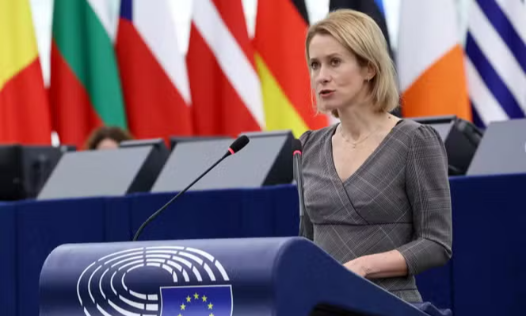Payment is being processed. Please do not refresh or close this page until your payment is complete.
 Book an Appointment
Book an Appointment

Kaja Kallas, the EU head of diplomacy, has announced that the EU wants to reopen the delegation in Syria, which will result in the opening of EU embassies in Damascus and progress in bilateral relations with the Middle Eastern country.
This statement was communicated during a debate at the European Parliament, where Kallas revealed that the first contact with the new leadership was constructive, indicating a positive outcome on Syria’s behalf, Schengen.News reports.
European countries and international organisations are showing interest in expanding their influence in Syria after the end of the Assad government, which lasted nearly five decades.
EU Countries Alerted Over the New Authority in Syria
As the EU plans to expand its influence in Syria, concerns about new authorities linger. According to Le Monde, the Islamist group Hayat Tahrir al-Sham (HTS) operates in Syria – a group that is considered a “terrorist” organisation by several Western governments.
Although the EU has promised to support Syria, there are some conditions that new leaders must respect, including protecting minorities and “shunning” extremism.
Kallas, on the other hand, pointed out that Russian military bases in Syria should not be there since it did not help the Middle Eastern country but rather helped Assad leave, offering him shelter.
Several EU Countries Froze Syrians’ Asylum Applications Due to Security Uncertainty
After the end of Assad’s rule in Syria, EU governments were prompt to issue decisions or statements. Some of them, like Germany and Austria, decided to pause processing the Syrians’ asylum applications.
Countries like Sweden, the Netherlands, Norway, Denmark and Finland have also decided to put on hold asylum applications filed by Syrians as they monitor how the situation develops in the Middle Eastern country.
Greece had one of the most rigorous approaches against Syrian refugees, as the officials implied they should return to their home country.
Syrians returning to their home country is likely to have a negative impact on the EU economy, with Germany being the hardest hit. A new study revealed that 76 per cent of Syrian doctors in Germany want to return to Syria. This would leave the German healthcare sector scarce.
Source: https://schengen.news/eu-wants-to-reopen-embassy-in-syria/